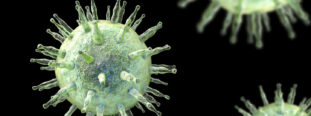Diet and MS: should I avoid milk? – Part 2
One of the earliest studies looking at diet and MS found that the rate of MS was higher among farmers compared to fishermen (Swank RL. Am J Med Sci 1950;220:421-430; Swank and colleagues. N Engl J Med 1952;246:722-728). While this focused attention on the possible benefits of fish oils, it also suggested that dairy products might be having a negative effect in MS. The same idea surfaced in the 1970s and again in the 1990s when studies suggested a link between higher milk consumption and higher rates of MS (Butcher J. N Z Med J 1976;83:427-430; Malosse and colleagues. Neuroepidemiology 1992;11:304-312).
This raised two key questions: Was there a problem with milk? And if so, was the problem the fat content in milk or was it something else?
One possibility was that milk proteins, which have been linked to a number of autoimmune diseases such as Type 1 diabetes, might affect the autoimmune response seen in MS. This immune reaction to milk proteins shouldn’t be confused with lactose intolerance, in which people stop producing the enzyme (lactase) needed to digest lactose (a milk sugar). Most people in the world (and most mammals) become lactose-intolerant after they are weaned and milk is no longer part of their usual diet. So you may have MS as well as lactose intolerance, but the two aren’t believed to be connected.
So do the proteins in milk affect MS in some way? This isn’t entirely clear. An early study looked at one protein, called beta-casein, which did stimulate antibody production in autoimmune diabetes and celiac disease, but failed to do the same in MS (Monetini and colleagues. Horm Metab Res 2002;34:455-459).
So attention turned to two other milk proteins. One of these, called butyrophilin, was intriguing because its structure was very similar to a component of myelin (called MOG, for myelin oligodendrocyte glycoprotein (Gardinier and colleagues. J Neurosci Res 1992;33:177-187; Pham-Dinh and colleagues. Proc Natl Acad Sci USA 1993;90:7990-7994). The thinking was that the immune system learns to recognize butyrophilin as a foreign protein, then confuses it with the body’s own MOG, resulting in an autoimmune attack on myelin. This case of mistaken identity is called molecular mimicry: one molecule is a mimic of another (the same confusion may exist with viral proteins and myelin). In fact, one study found that about one-third of people with MS had an immune reaction both to butyrophilin and MOG (Guggenmos and colleagues. J Immunol 2004;172:661-668). This was supported by a second study that found that people with MS had a more robust antibody response both to MOG and butyrophilin compared to people without MS (Kennel De March and colleagues. J Neuroimmunol 2003;135:117-125).
The range of possible milk proteins involved in the development of MS was expanded in a study that looked at three milk proteins: casein, BLG (for beta-lactoglobulin) and BSA (for bovine serum albumin) (Winer and colleagues. J Immunol 2001;166:4751-4756). All three induced a heightened immune (T cell) response in blood samples obtained from people with MS. The key culprits for people with MS were BSA and BLG. People with MS reacted to these milk proteins more often than did healthy controls or people with Type 1 diabetes (an autoimmune disease).
Similarly, a Canadian study in children with autoimmunities showed abnormal reactions to a range of cow’s milk proteins compared to healthy children (Banwell and colleagues. Ann Neurol 2008;63:98-111).
These findings suggested that molecular mimicry might be causing immune cells in people with MS to confuse a milk protein with a myelin protein, or that there was a dysregulated immune response that promoted a reaction to milk proteins as well as “self” proteins.
However, things are never as simple as they may first appear. After the immune system has learned to react to a specific protein, it may grow accustomed to the protein being there. This process is called immune tolerance. The immune system learns to tolerate and accept “foreign invaders”, just as someone without hay fever can tolerate high levels of pollens in the air. This concept of inducing immune tolerance was an early explanation of how Copaxone worked. And two studies in animals found that butyrophilin actually suppressed the development of the animal equivalent of MS (Mana and colleagues. Int Immunol 2004;16:489-499; Stefferl and colleagues. J Immunol 2000;165:2859-2865). Giving the milk protein actually reduced MS-like symptoms.
As things stand at the moment, the issue of whether cow’s milk to harmful or helpful in MS is undecided. The evidence can (partially) support both arguments. Unfortunately, no clinical studies in people have been done to see if restricting milk consumption has any effect on MS relapses, MRI activity or progression of disability, and no studies are currently planned.
It may be that you’ll feel better if you restrict your intake of cow’s milk so that’s something you may want to do. Some have suggested that replacing cow’s milk with goat’s milk is somehow better (Kotzamani and colleagues. Neurology 2012;78:1728-1735), but this hasn’t been adequately studied. Of course you’ll want to avoid drink regular cow’s milk or opt for a lactose-free alternative if you are lactose-intolerant.
You can now read free full-text articles on diet and MS in the MSology Library.
Share your thoughts on diet and view latest results from others
Share this article
Facebook Twitter pin it! Email
Related Posts
Back





